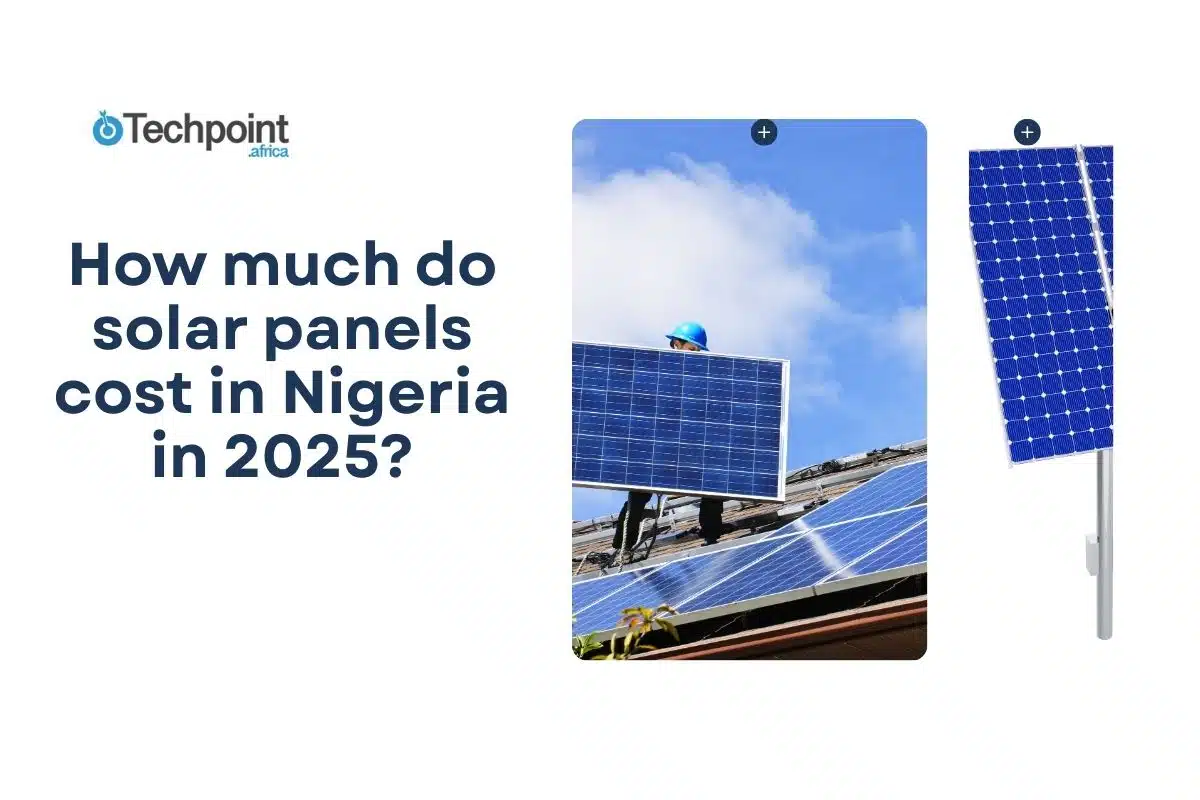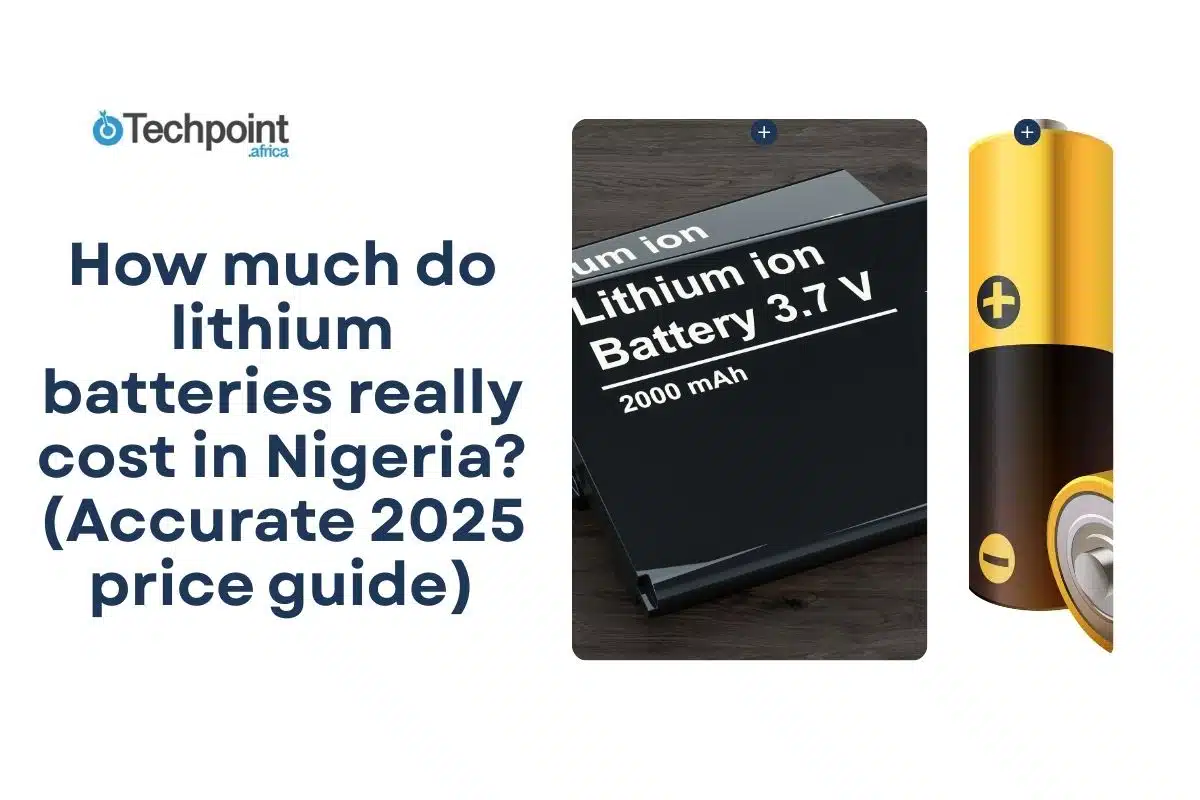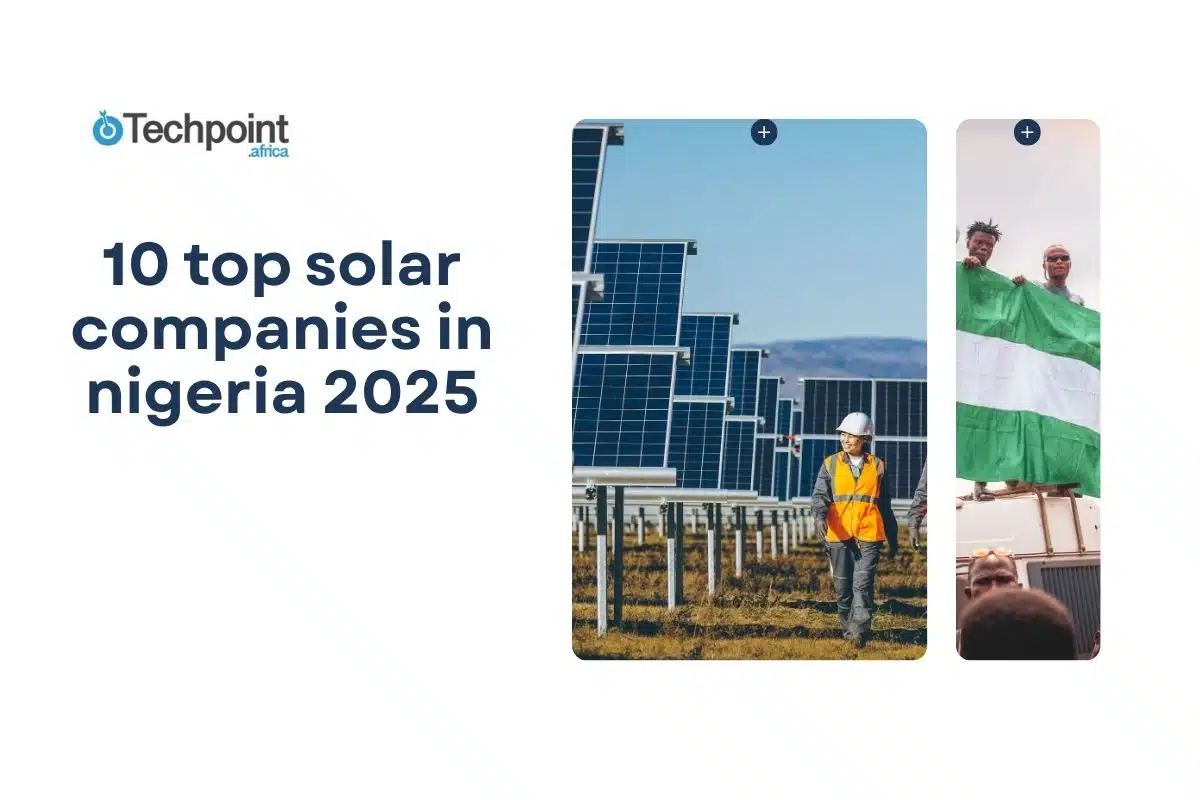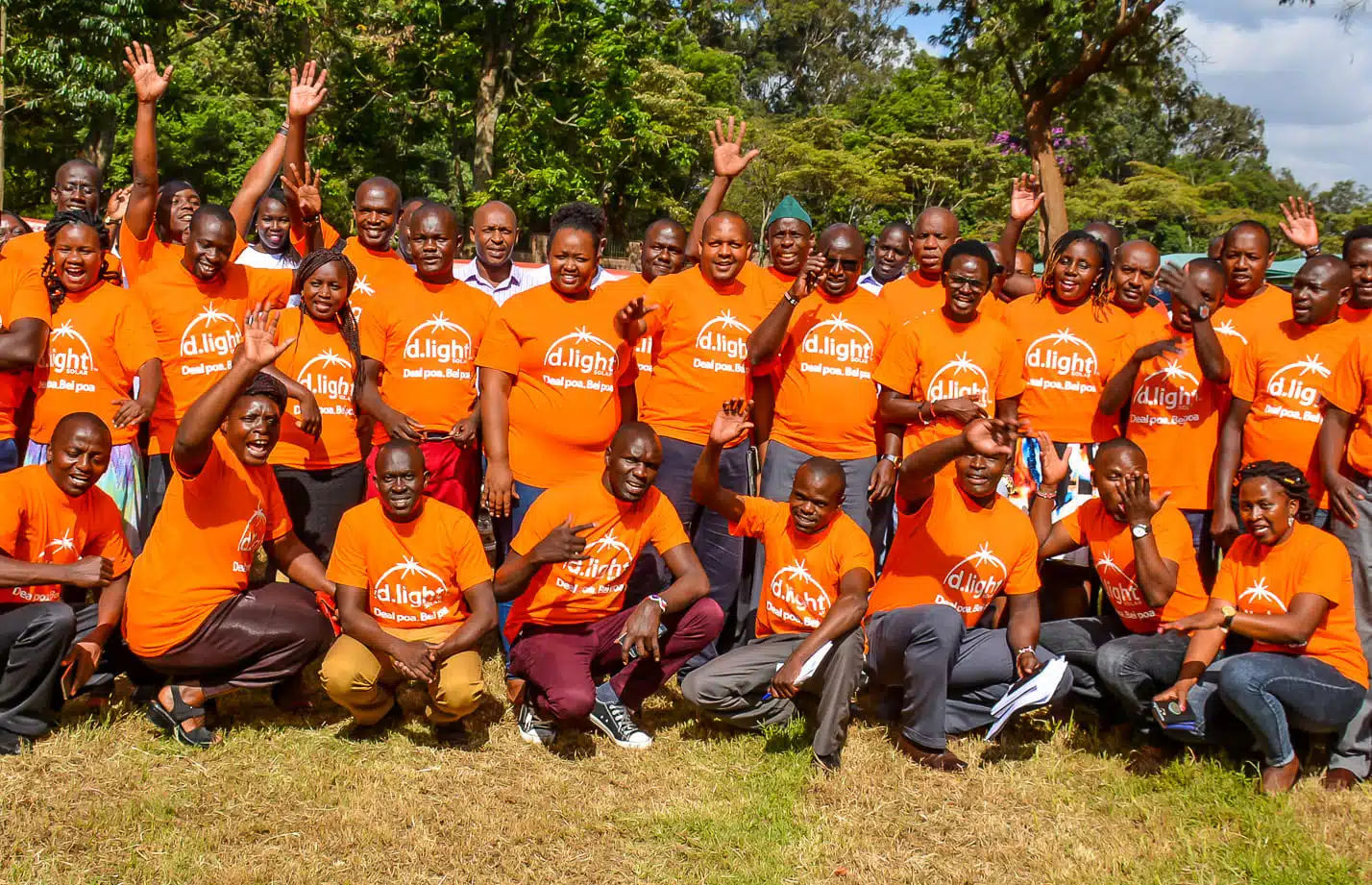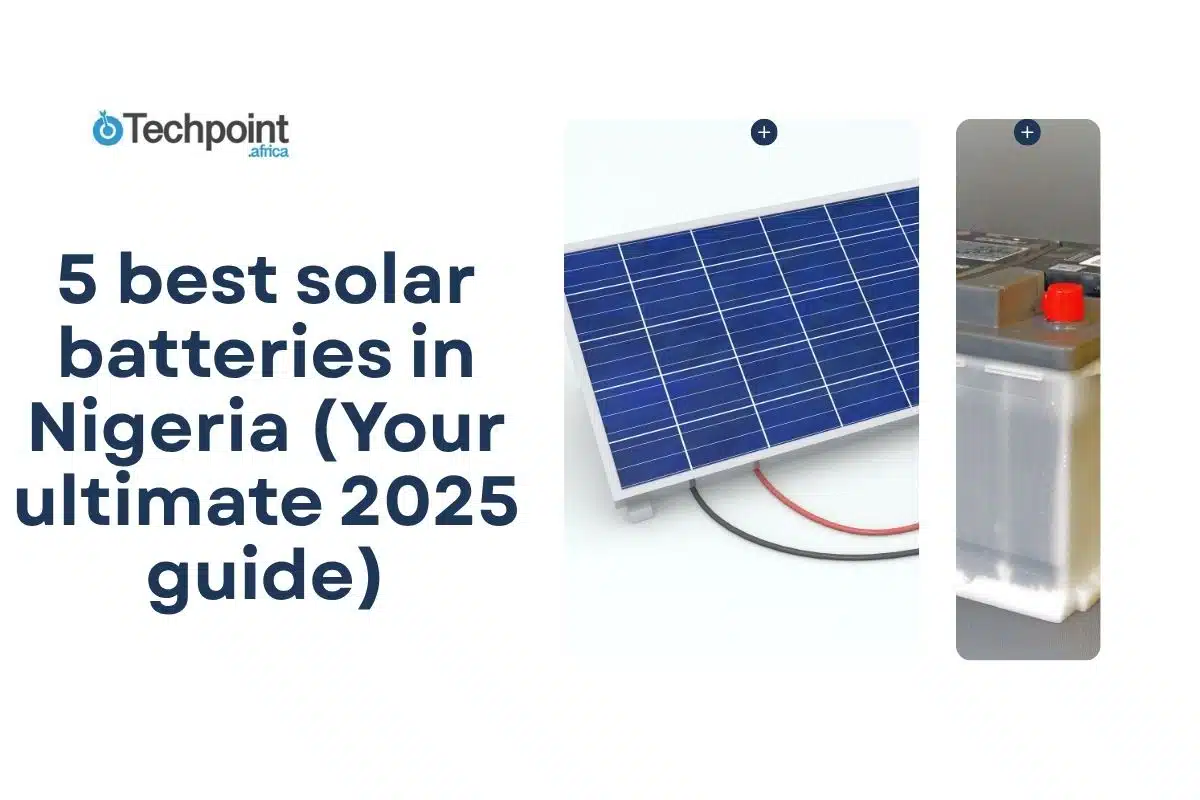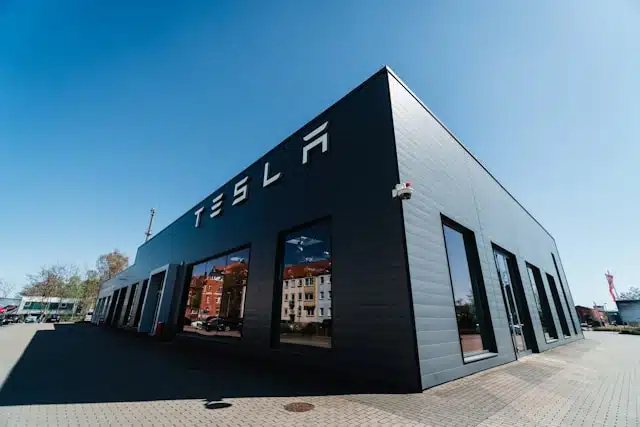A day in the life of a solar panel buyer in Nigeria can feel like stepping into a maze of confusing price tags, especially if they set out without the proper price orientation.
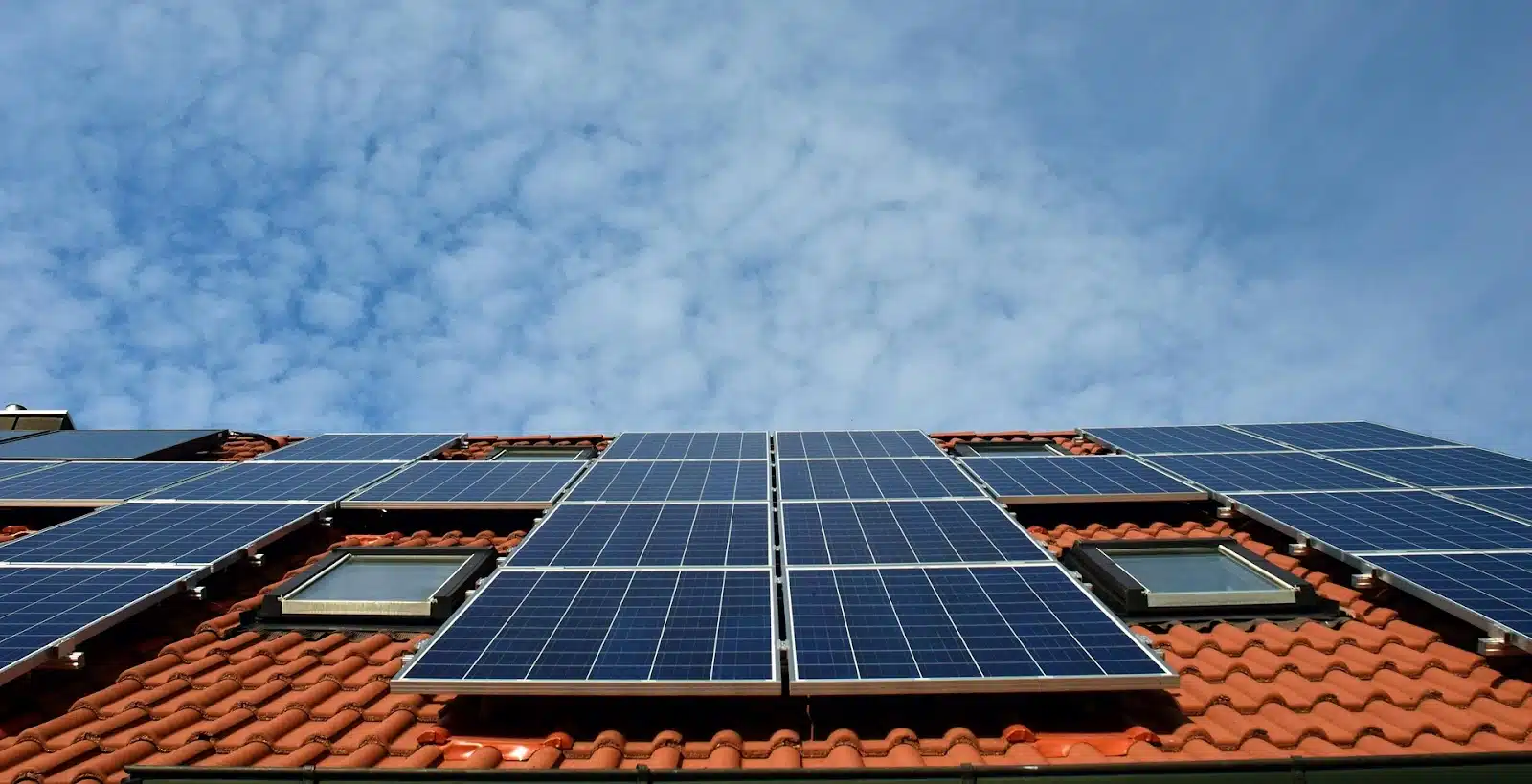
Since solar panels aren’t rare diamonds, they’re everywhere, sold by different vendors with very different price tags. One platform might list a 300W panel for ₦120,000, another offers it for ₦75,000, and your local vendor down the street swears it’s ₦90,000. It’s enough to make you pause and ask, “Why the massive difference? Are they even selling the same thing?
That’s precisely why we created this guide to make sense of it all.
We skipped outdated blog lists and went directly to trusted Nigerian sources, collecting real 2025 prices for every major brand and wattage. The goal? To give you clarity and save you from wasting hours buried in conflicting Google searches. Expect to find price tables, charts, and tips tailored to help you navigate the Nigerian solar market without feeling lost or overwhelmed.
If you’re about to invest in solar panels, this is the guide you need to read first. And if you’ve already bought one but feel like you overpaid or didn’t get the best option, we’ve got the answers you’re looking for.
How We Collected the Solar Panel Prices for This Article
To give you the most accurate breakdown of how much solar panels really cost in Nigeria today, we went straight to where real buyers shop. Every price you’ll see here was collected manually from active listings on trusted platforms, not guesswork or outdated online lists.
We focused on five primary sources: Jumia, Jiji, Facebook Marketplace, EnergyMall, and the official Felicity Solar website.
On Jiji.ng, we looked at multiple listings per brand, paying close attention to sellers with verified profiles, full product descriptions, and active pages. We focused on new and used models and popular brands like Canadian Solar, JA Solar, Jinko, LONGi, Trina, and Qasa.
Jumia helped us verify pricing consistency for brand-new panels, especially for the most common wattages. We avoided promotional listings and chose stable price ranges from multiple vendors.
On Facebook Marketplace, we reviewed listings with location tags, seller activity, and product photos to confirm they were current and legit. Many affordable used options came from here.
We also included EnergyMall, a known solar e-commerce site in Nigeria, to get accurate prices for brands like Felicity Solar. Lastly, the official Felicity Solar website was used to track retail pricing for their most recent models.
Since most solar panels appeared across three or more platforms, we calculated a typical price range to reflect what buyers will likely see in today’s market. This helped us build a more realistic overview. So, instead of showing you separate prices from separate sellers, we formed a unified average for each solar panel. These final numbers were then shaped into a clear, visual price trend you’ll find later in the article.
Disclaimer
The solar panel prices shared in this article reflect market activity as of July 2025. Every listing was pulled from publicly available sources and reviewed for seller credibility, complete product details, and current availability.
That said, solar panel prices in Nigeria can shift based on exchange rate fluctuations, logistics, seller location, or limited-time promotions. What you’d be seeing here are real prices, but they may differ slightly depending on when and where you shop.
While we’ve taken great care to average out the ranges so you’re not looking at one-off deals but realistic pricing across the board, we firmly maintain it’s a good idea to double-check with the seller for the latest price and availability before making any purchase.
Current Solar panel prices in Nigeria (2025)
Solar panel prices are not known for a uniform figure, not in Nigeria, and definitely not in 2025. The price tables listed below have been divided into four distinct but necessary parts: Premium, Good Value, Budget, and Small-Load solar panels. This way, whether you’re trying to power a full home or just keep a few lights on, you’ll know what to expect and what a fair price looks like right now.
Here they are:
Category 1: Premium Solar Panel Options
| Solar Panel Brand | Wattage (W) | Use Case | Condition | Jumia Price (₦) | Jiji Price (₦) | Facebook Marketplace (₦) | What to Expect |
| Canadian Solar | 200 | Ideal for small homes and off-grid starter kits | Brand New | ₦63,868 | ₦48,000–₦58,000 | ₦40,000–₦50,000 | Durable and monocrystalline; reliable for basic energy needs like lights and fans |
| Canadian Solar | 200 | Ideal for small homes and off-grid starter kits | Used | Not applicable to this platform | ₦38,000–₦50,000 | ₦35,009–₦48,000 | Still functional and cost-effective for light residential use |
| Canadian Solar | 300 | Suitable for medium homes and consistent loads. | Brand New | ₦58,000–₦134,000 | ₦60,000–₦95,000 | ₦50,000–₦65,000 | Tier-1 efficiency, provides balanced performance and solid build |
| Canadian Solar | 300 | Suitable for medium homes and consistent loads | Used | Not applicable to this platform | ₦45,000–₦75,000 | ₦30,000–₦45,000 | Works well for entry-level solar setups, tested to still meet moderate demand |
| Canadian Solar | 400 | Suitable for large homes and multiple appliances | Brand New | ₦77,850 | ₦80,000–₦110,000 | ₦58,000–₦110,000 | Excellent output and voltage retention, long-lasting for daily household use |
| Canadian Solar | 400 | An excellent fit for large homes and multiple appliances | Used | Not applicable to this platform | ₦75,000–₦88,000 | ₦65,000 | Verified quality, can serve as a backup unit or expansion panel |
| JA Solar | 450 | Best for homes with heavy usage or small businesses | Brand New | ₦108,000 | ₦90,000–₦115,000 | ₦100,000–₦115,000 | High-grade monocrystalline panel with strong tolerance to heat and sun exposure |
| JA Solar | 450 | Best for homes with heavy usage or small businesses | Used | Not applicable to this platform | ₦52,000–₦90,000 | ₦60,000–₦80,000 | Stable output, refurbished for resale, good secondary option |
| JA Solar | 550 | Well-suited for commercial buildings or estates | Brand New | ₦171,250 | ₦110,000–₦150,000 | ₦100,000–₦115,000 | Large wattage capacity with advanced design, dependable for long-term solar arrays.. |
| JA Solar | 550 | Well-suited for commercial buildings or estates | Used | Not applicable to this platform | ₦100,000–₦130,000 | ₦98,000–₦105,000 | Durable and tested; suitable for long-running installations |
| Trina Solar | 300 | Versatile for home and office rooftops | Brand New | ₦57,050–₦75,000 | ₦45,000–₦85,000 | ₦120,000 | Monocrystalline performance with good results under cloudy conditions |
| Trina Solar | 300 | Versatile for home and office rooftops | Used | Not applicable to this platform | ₦45,000–₦60,000 | ₦50,000–₦55,000 | Minor cosmetic flaws; tested operational quality. |
| Trina Solar | 450 | Great for high-load buildings and extended usage | Brand New | ₦88,000–₦89,000 | ₦90,000–₦120,000 | ₦75,000–₦120,000 | High wattage, Tier-1 design, resistant to daily usage pressure |
| Trina Solar | 450 | Great for high-load buildings and extended usage | Used | Not applicable to this platform | ₦85,000–₦95,000 | ₦80,000–₦90,000 | Pre-owned, performs well for daily power demands |
Category 2: Good Value Solar Panel Options
| Solar Panel Brand | Wattage (W) | Use Case | Condition | Jiji Price (₦) | Facebook Marketplace Price (₦) | What to Expect |
| Jinko Solar | 300 | Ideal for homes running essential appliances | Brand New | ₦50,000–₦85,000 | ₦50,000–₦57,000 | Entry-level Tier-1 module with good efficiency and decent temperature performance |
| Jinko Solar | 300 | Ideal for homes running essential appliances | Used | ₦40,000–₦60,000 | ₦50,000 | Reused but tested, fits budget installations well |
| Jinko Solar | 400 | Moderate load support for mid-sized homes | Brand New | ₦60,000–₦110,000 | ₦95,000–₦115,000 | Solid build, meets household needs for fans, TVs, and lights |
| Jinko Solar | 400 | Moderate load support for mid-sized homes | Used | ₦50,000–₦85,000 | ₦70,000–₦85,000 | Refurbished for functionality, energy retention remains stable |
| LONGi Solar | 450 | Perfect for homes with medium to high usage | Brand New | ₦71,000–₦130,000 | ₦85,000–₦100,000 | High temp resilience, long warranty, suitable for tropical climates |
| LONGi Solar | 450 | Perfect for homes with medium to high usage | Used | ₦70,000–₦110,000 | ₦95,000 | Verified pre-used unit, still performs close to new standards |
| LONGi Solar | 500 | Ideal for homes with air conditioning or fridges | Brand New | ₦95,000–₦125,000 | ₦85,000–₦120,000 | Great build and conversion, competitive price for its tier |
| LONGi Solar | 500 | Ideal for homes with air conditioning or fridges | Used | ₦72,000–₦105,000 | ₦60,000–₦95,000 | Slight wear and tear, still meets basic electricity requirements |
Category 3: Budget-Friendly Solar Panel Options
| Solar Panel Brand | Wattage (W) | Use Case | Condition | EnergyMall Price (₦) | Jiji Price (₦) | Official Felicity Website Price (₦) | What to Expect |
| Felicity Solar | 350 | Fantastic for essential lighting and fans | Brand New | ₦149,512 | ₦75,000–₦140,000 | ₦167,000.00 | Polycrystalline panel, provides stable daytime power on a budget |
| Felicity Solar | 350 | Great for essential lighting and fans | Used | Not applicable to this platform | ₦73,000–₦80,000 | Not applicable to this platform | Refurbished, usable for backup lights or rural setups |
| Felicity Solar | 280 | Suitable for basic lighting and small loads | Brand New | ₦83,062 | ₦63,000–₦125,000 | ₦136,000.00 | Low-cost solar alternative for entry-level energy independence |
| Felicity Solar | 280 | Suitable for basic lighting and small loads | Used | Not applicable to this platform | ₦48,000 | Not applicable to this platform | The working condition unit is ideal for very light energy needs |
Category 4: Small-Load Solar Panel Options
| Solar Panel Brand | Wattage (W) | Use Case | Condition | Jumia Price (₦) | Jiji Price (₦) | Facebook Marketplace Price (₦) | What to Expect |
| Qasa Solar | 50 | Supports bulb lighting and phone charging | Brand New | ₦59,990 | ₦31,900–₦44,999 | ₦31,000–₦45,000 | Very compact and reliable for powering bulbs, radios, and phones |
| Qasa Solar | 50 | Supports bulb lighting and phone charging | Used | Not applicable to this platform | ₦15,000–₦20,000 | ₦16,000–₦25,000 | Ideal for minimalist users needing backup for small devices |
| Qasa Solar | 20 | Best for single-device emergency use | Brand New | ₦23,750 | ₦35,000 | ₦20,000 | Portable and affordable, fits emergency light or charging tasks |
| Qasa Solar | 20 | Best for single-device emergency use | Used | Not applicable to this platform | ₦15,000 | ₦10,000 | Pre-owned, best used in low-load rural or low-cost environments |
Solar Panels Nigerian Price Trend 2025
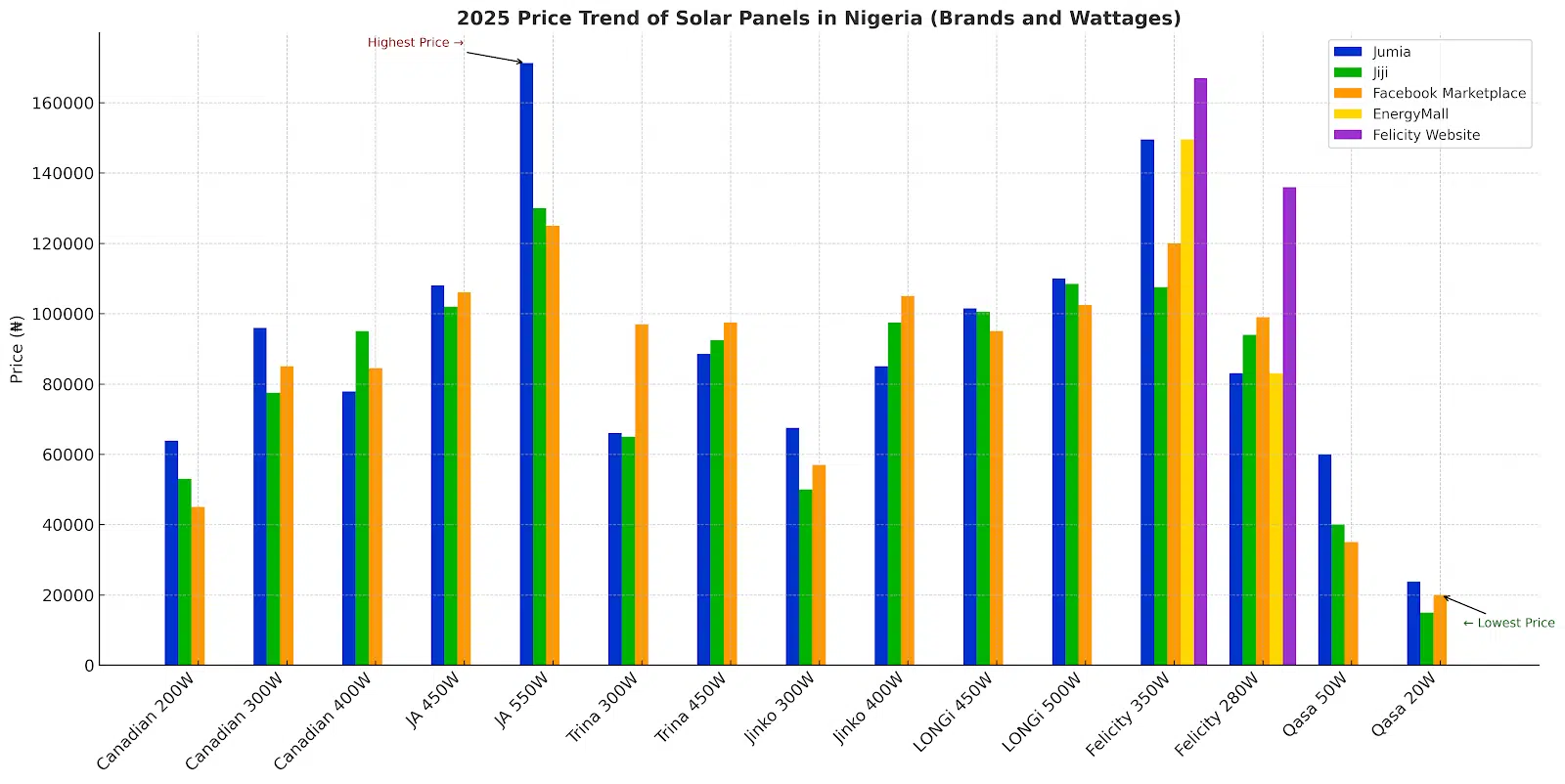
What This Chart Tells You About Solar Panel Prices in Nigeria (2025)
Scanning through this price chart, you’d think you’re just seeing figures, but it’s more than that. This chart unlocks a full view of how solar panel costs shift across brands, wattages, and platforms. From Jumia to Facebook Marketplace, and even retailers like EnergyMall and the Felicity website, the chart helps you spot the best deals.
Take premium panels, for example. JA Solar’s 550W panel peaks at ₦171,250 on Jumia (the highest price on the chart) but drops to ₦100,000 on Facebook Marketplace. Canadian Solar’s 400W option follows a similar pattern, showing ₦77,850 on Jumia and ₦58,000 on Facebook Marketplace. That’s a big difference if you’re shopping with a budget in mind.
In the value category, you’ll find Jinko Solar 400W hovering around ₦60,000–₦110,000 on Jiji and ₦95,000–₦115,000 on Facebook Marketplace. LONGi’s 450W panel is pricier on Jumia (up to ₦130,000), yet falls between ₦85,009–₦100,000 on Jiji, making the latter a smarter choice if you compare offers.
Budget buyers have a lot to look at, too. Felicity Solar’s 350W panel is ₦149,512 on EnergyMall, but you’ll find it for as low as ₦75,000 on Jiji. Oddly enough, the Felicity website sells it for ₦167,000 — the most expensive.
Then there are small-load panels like Qasa’s 50W model, which is fantastic for emergency lighting or charging phones. Jumia lists it at ₦59,990, while Jiji offers the same panel for as low as ₦31,900.
But Why Do Solar Panels in the Price Table and Trend Chart Have Different Prices?
The solar panels in the price table and price trend chart have varying prices because of several factors that influence their cost. These reasons range from their energy capacity to where they’re sold. Let’s take a closer look:
Wattage and Energy Output
One key factor is the wattage of the solar panel. Higher wattage means more electricity can be generated, which makes panels like JA Solar 450W or Canadian Solar 550W more expensive. These panels are designed to handle higher energy loads, making them ideal for large homes or businesses with heavy power needs.
On the other hand, lower-wattage options like Qasa Solar 50W are perfect for light energy use, such as charging phones or powering small devices. Because they generate less electricity, they’re priced significantly lower.
Panel Type and Technology
The technology behind the solar panel also affects its cost. For example, monocrystalline panels are highly efficient and durable but come with a higher price tag due to the advanced manufacturing process. In contrast, polycrystalline panels are more affordable but slightly less efficient, making them a popular choice for budget-conscious buyers. If you’re considering state-of-the-art options like bifacial panels, which can absorb sunlight on both sides, expect to pay even more.
Brand and Condition
Brand reputation plays a big role in pricing. Established names like Canadian Solar and JA Solar are known for high-quality products, so their panels often cost more. Additionally, whether the panel is new or used matters, brand-new panels offer better warranties and efficiency, while used or refurbished panels are more affordable but may have a reduced lifespan or minor wear and tear.
Platform and Market Prices
Where you buy your solar panel can make a big difference. Platforms like Jumia and EnergyMall often have higher prices due to shipping fees and vendor costs. Meanwhile, Jiji and Facebook Marketplace are great for budget-friendly options, as sellers here often negotiate directly with buyers.
Import Costs and Government Policies
Since most solar panels are imported, prices are heavily influenced by exchange rates and import duties. For example, a weaker Naira increases costs. Government policies also play a role, as tax waivers or incentives for renewable energy can lower prices, while high import taxes drive them up.
How to Choose the Best Solar Panel for Your Needs
Choosing the right solar panel for your needs involves considering several factors that ensure you get the best value for your investment. Here’s a guide to help you decide:
Understand Your Energy Needs
The first step is to assess your energy needs. This involves calculating how much power you use daily. For instance, if you only need to power a few devices like light bulbs, a fan, or a phone charger, a lower-wattage panel such as a 100W or 200W option might be all you need. However, if your energy demands include running a refrigerator, television, or other appliances, higher-wattage panels like 400W or 550W will be more suitable, as they are designed for heavier energy loads.
Consider Your Budget
Your budget also plays a crucial role in the decision-making process. Solar panels are available at a range of price points, from budget-friendly options to premium models. While higher-priced panels often offer better efficiency and durability, excellent mid-range and affordable options are available that can still provide reliable performance. For instance, panels like those from Felicity Solar or Jinko Solar are known for balancing affordability and quality.
Evaluate Panel Type
The type of solar panel you choose is equally important. Monocrystalline panels are highly efficient and long-lasting but tend to be more expensive. On the other hand, polycrystalline panels are less costly and provide reasonable efficiency for moderate energy needs. Advanced technologies, such as bifacial panels, may be worth considering if you want to maximize energy generation.
Assess the Buying Platform
Where you buy your solar panels can also affect the value you get. Platforms like Jumia, Jiji, and Facebook Marketplace offer different price ranges and guarantees, so compare options carefully. Purchasing from trusted sellers or platforms providing warranties can protect your investment.
Installation and Maintenance Needs
Finally, think about installation and maintenance. Solar panels require adequate space, proper mounting, and sometimes professional installation. Panels with low maintenance needs are ideal for areas with challenging weather conditions or heavy dust.
Final Words
Now that you’ve seen the actual solar panel prices across Nigeria’s biggest platforms, you can confidently approach your next purchase. The goal here was to clear out the confusion and show you what’s out there, what it costs, and why.
Everything here, from premium options to budget-friendly panels, reflects July 2025 prices, not guesses. Use the tables to explore wattage and condition, and use the chart to spot trends at a glance.
Solar doesn’t have to be complicated, and this guide ensures you get real value for your money.
Frequently Asked Questions (FAQs) About Solar Panels in Nigeria
1. How reliable are solar panels during Nigeria’s rainy season?
- Solar panels do work during the rainy season, but their efficiency drops due to reduced sunlight from cloud cover and heavy rain. On cloudy days, panels can produce 10% to 50% less power. However, modern solar systems with adequate battery storage and appropriately sized panels can still provide reliable energy even during extended rainy periods. Additionally, rain helps clean panels, which can improve performance afterward.
2. What’s the difference in performance and durability between imported and locally assembled solar panels?
- Imported solar panels, often from China or Europe, tend to have higher efficiency ratings and come with longer warranties. Locally assembled panels are usually more affordable and designed to withstand Nigeria’s specific climate challenges, like heat and humidity. While imported panels might offer better long-term performance, local options are improving and can be a cost-effective choice for many users.
3. Can I buy solar panels on credit or through installment payment plans in Nigeria?
- Yes, many solar companies and financial institutions in Nigeria offer installment plans or credit options to make solar more accessible. These plans often include flexible payment schedules and sometimes zero or low-interest rates. It’s advisable to compare offers and ensure the terms are clear before committing.
4. Which solar panel brands are most popular and trusted in Nigeria, and why?
- Popular brands in Nigeria include Renogy, Canadian Solar, Trina Solar, Jinko Solar, and some reputable local manufacturers. These brands are trusted for their proven durability, efficiency, and availability of after-sales service. Nigerians often choose brands based on warranty terms, price, and local support.
5. How do I protect my solar panels from theft or vandalism?
- Security is essential, especially in rural or unsecured areas. Common protection methods include installing sturdy fences, using security cameras (CCTV), employing alarm systems, and mounting panels in less accessible locations. You can also register their solar equipment with local authorities or insurance companies.
6. How do solar panels handle frequent power surges and unstable grid supply?
- Solar systems typically include inverters and surge protectors designed to handle voltage fluctuations and power surges common in Nigeria’s grid. These components protect both the solar panels and connected appliances, ensuring system longevity and safety.
7. Are professional maintenance services for solar panels widely available and affordable in Nigeria?
- Yes, many professional solar maintenance services exist across Nigeria, especially in urban centers. Maintenance usually involves cleaning panels, checking wiring and battery health, and ensuring system components function optimally. Costs vary but are generally affordable compared to the benefits of prolonged system life.
8. Can solar panels power boreholes and water pumps effectively?
- Absolutely. Solar-powered boreholes and water pumps are increasingly popular in Nigeria for irrigation and domestic water supply. Solar systems can be sized to meet the power needs of pumps, reducing reliance on expensive and polluting diesel generators.
9. What is the warranty process like for solar panels purchased in Nigeria?
- Warranty terms vary by brand and supplier but typically range from 5 to 25 years for panels. It’s important to buy from reputable dealers who honor warranties and provide after-sales support. Always keep your purchase receipts and warranty documents, and understand the claim process before buying.
10. Can solar panels save me money compared to using a generator?
- Yes. Although solar systems have a higher upfront cost, they save money over time by eliminating fuel expenses and reducing maintenance costs associated with generators. Given Nigeria’s high fuel prices and frequent outages, solar power is often more economical and environmentally friendly in the long run.
11. How does cloud cover specifically affect solar panel efficiency in Nigeria?
- Cloud cover reduces the amount of sunlight reaching solar panels, cutting their efficiency by 10% to 67% depending on thickness. However, solar panels can still generate power from diffuse light, so they do not stop working entirely during cloudy days.
12. What is the typical lifespan of solar panels and batteries in Nigeria’s climate?
- Solar panels generally last 20 to 25 years, while battery lifespan varies by type: lead-acid batteries last about 3 to 5 years, and lithium-ion batteries can last 8 to 10 years or more with proper care.
13. Are there government incentives or policies supporting solar adoption in Nigeria?
- While Nigeria has some policies encouraging renewable energy, widespread incentives or subsidies for solar adoption are limited. However, some states and private organizations offer grants or financing options to promote solar energy use.
14. How can I ensure that I’m buying genuine, high-quality solar panels in Nigeria?
- Buy from reputable dealers with verifiable certifications and good customer reviews. Avoid unusually cheap panels, which may be counterfeit or of low quality. Request product datasheets and warranties, and if possible, seek recommendations from trusted solar users or professionals.

